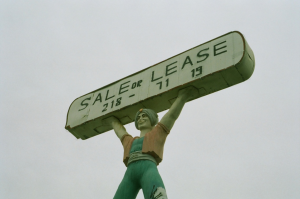Buying Or Leasing Equipment For Business? Which Is The Better Option
All types of businesses need equipment regardless of their sector. For instance:
- A retail storeneeds shopping carts and baskets, display cases, shelves, countertops, cash registers, a security system, etc.
- A transportation business needs motor trucks, conveyor belts, cranes, etc.
- An office building needs a cooling system, emergency generators, elevators, etc. Employees in the office need computers, furniture, stationery, etc to work.
Apart from use, owning equipment can be a great asset to your business. For that reason, entrepreneurs often approach business financing services for loans to buy equipment because the right type of equipment can serve as a valuable investment.
However, business owners are often faced with the decision of whether to buy or rent equipment when it comes to usage. Both choices have certain perks, which make the decision hard. This blog will discuss how you can choose the right option for your business.
When Should You Lease Equipment?
It’s best to lease equipment for business use when you know the equipment will not be needed frequently. For example, a forklift is useless for your new office once its construction is complete because your staff will not need it after it the workplace is operational.
The frequency of use and the value brought to the company are important factors that can help you decide whether or not you should lease equipment. If the equipment is only required for a single project, your business doesn’t have to go to an acquisition financing service to buy it since leasing it is more affordable.
You may also need specialized equipment that has a specific purpose and cannot be used for multiple things, especially if you’re in the industrial or manufacturing sector. Specialized equipment tends to be expensive, so it makes sense for businesses to lease it instead of buying it.

When Should You Buy Equipment?
The choice to buy equipment is not easy because of the capital the business has to invest. However, owning equipment is an asset for the business and opens up doors of revenue for you. For example, asset-based lending services are more likely to lend to you if you have any equipment you can place as collateral.
If you rent equipment for a long time, your rental expense can exceed the amount of money your business could have spent to buy the equipment.
Similarly, there is some equipment your business cannot do without. Necessary equipment like the power generator is needed by offices regardless of the frequency of use. It’s advisable to buy a generator instead of renting one every time there is a power outage. Similarly, safety equipment is a necessary investment for all industries, and hence, a long-term lease can be more expensive than owning the safety equipment.
What You Need To Know About Leasing Equipment
There are different types of equipment leases you can choose based on business needs.
Operating Lease
Imagine renting monthly property. An operational lease is similar to it, except instead of renting a property from a landlord, you rent equipment from a lessor. The ownership of the equipment is not transferred to the lessee in the leasing agreement, just like a tenant does not have ownership of the rental property. This expense is tax-deductible and reduces your taxable income.

Financial Lease
This type of lease transfers some rights of ownership and the risks that come with it to the lessee if the equipment is leased for more than a year. The lessor still owns the equipment like in an operational lease, but it also counts as an asset for the lessee, and the lessee gets a chance to buy the equipment at a price lower than its market value at the end of the lease term.
This type of lease, however, comes with interest as the value of the equipment depreciates over time. The interest is tax-deductible, though, and does not count toward your taxable income.
Broker And Choosing A Lessor
A broker is a middleman between the lessee and the lessor who moderates the leasing agreement. Their fee is worth the investment because they remain updated on the leasing market.
To choose a lessor, give preference to those who want to work with you. They are likely to understand your needs and settle for your terms.
What You Need To Know About Buying Equipment

Both lending and buying equipment can be right for your business, depending on its needs.
It’s much better to buy equipment that your business frequently uses instead of leasing it. Buying equipment means the business has a new asset. You can generate revenue through this asset by renting it when it’s not being used. It can make up for the cost of buying the equipment by leasing it if it’s not frequently used.
Equipment like specialized machinery can be expensive. Lenders give acquisition loans to businesses to acquire costly equipment. If the long-term leasing of equipment is more expensive than buying the equipment, your business should opt for ownership.
Acquisition Financing Solutions
A full guide to acquisition loans for equipment can be found here. Government and private financing companies like the NCC Fund give acquisition loans to businesses to expand their operations or buy assets. You can get in touch with the NCC Fund here.
About The Author
Vana Kahn is a freelance journalist writing who likes to write about the real estate market and current investment trends in businesses.
